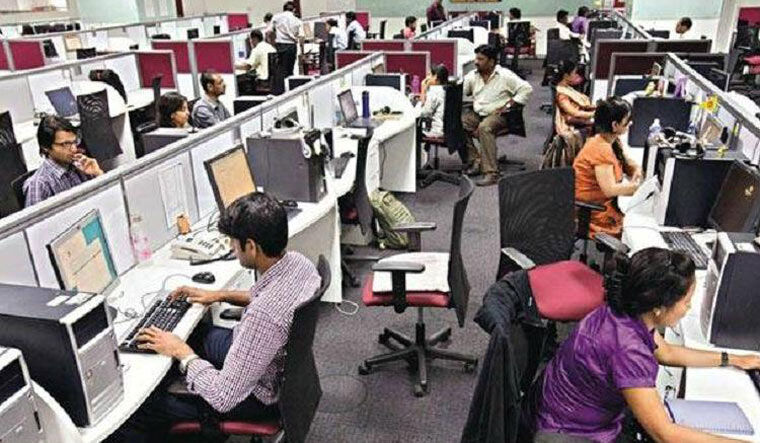Pvt offices in Delhi told to order WFH for all staffers

New Delhi: The Delhi government on Tuesday directed the closure of all private offices, except those in exempted categories, amid the rapidly rising number of Covid cases, mandating that all employees in these offices be asked to work from home (WFH).
The private offices, which were till now operating with 50 per cent workforce, have been asked to follow the practice of work from home, according to the latest order issued by the Delhi Disaster Management Authority after a high-level meeting on Monday.
Meanwhile, India logged 1,68,063 new infections taking the total tally of COVID-19 cases to 3,58,75,790 which includes 4,461 cases of the Omicron variant, according to the Union Health ministry data updated on Tuesday.
The active cases rose to 8,21,446, the highest in 208 days, while the death toll climbed to 4,84,213 with 277 fresh fatalities, the data updated at 8 am stated. The DDMA order, on the other hand, also directed the closing of restaurants and bars in the city. However, restaurants have been allowed to service home delivery and take away orders. The fresh restrictions will come into force with immediate effect and continue till further orders.
While officials at the meeting also considered reducing passenger capacity in Delhi Metro and buses back to 50 per cent but the restriction on private offices and workplaces will help solve the problem of crowding at bus stops and Metro stations.
"It has been observed that numbers of COVID-19 cases (including the cases of Omicron variant) have been rapidly increasing over the last few days and the positivity rate has crossed 23 percent," the DDMA order said.
"Therefore, it has been felt necessary that some more additional restrictions are required to be imposed in Delhi to contain the spread of COVID-19 virus, including the highly contagious and transmissible Omicron variant," stated the order.
"All private offices shall be closed, except those which are falling under the exempted category. The practice of work from home shall be followed. All restaurants and bars shall be closed. However, restaurants will be allowed only for home delivery/takeaway of food items," it stated.
The exempted category of private offices, including those of banks, companies providing essential services, insurance and mediclaim, pharma companies, offices of advocates, courier services, non-banking financial corporations, security services, media, petrol pumps and oil and gas retail and storage outlets, among others, will be allowed to function with 100 per cent staff.
The DDMA had imposed a 'yellow alert' in Delhi on December 28 after the Covid positivity rate remained above five percent for the previous two consecutive days.
Under 'yellow alert' restrictions, private offices were allowed to function with 50 percent of staff attendance from 9 am to 5 pm.
Government offices in the city are currently working with 50 percent attendance.
Significantly, the Capital on Tuesday reported 21,259 fresh Covid-19 cases even as the daily positivity rate rose to over 25 per cent. However, in an alarming sign, the daily Covid deaths rose to 23 — the highest reported toll for 24 hours in nearly seven months.
The Omicron variant is "almost unstoppable" and everyone will eventually be infected with it, a top government expert told NDTV.
He claimed that reported infection numbers are "nowhere close to the truth" as actual numbers could be up to 90 times more than reported for Omicron infections.
Stressing that Covid is "not a frightening disease anymore" as the new strain is milder and is leading to much less hospitalisation, he said that it's a disease we can deal with. ''... we are dealing with quite a different virus. It's much milder than Delta, as you all know, not only that, it is practically unstoppable,'' he said, adding that Omicron presents itself just like the cold.
"A majority of us will not know we have been infected, probably more than 80 percent will not even know when we have it," said Dr Jaiprakash Muliyil, epidemiologist and chairperson of the Scientific Advisory Committee of the National Institute of Epidemiology at the Indian Council of Medical Research.



